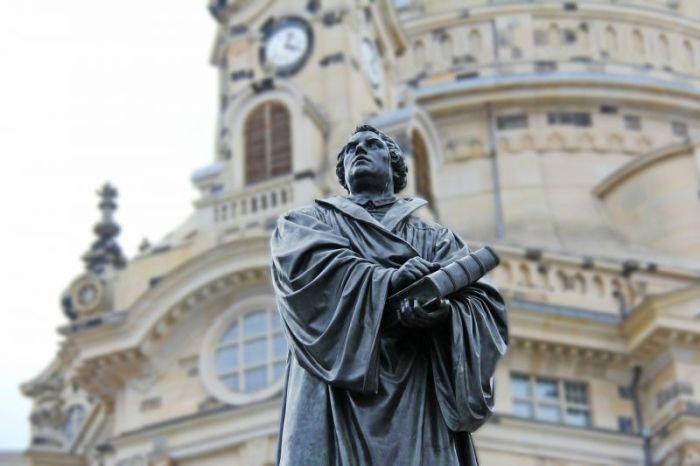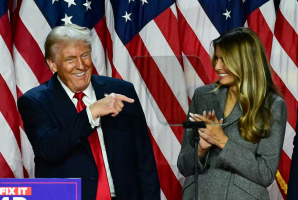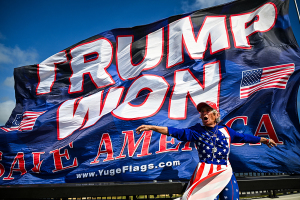On Religious Liberty, We're All Protestants Now

Five hundred and one years ago today, Martin Luther nailed his 95 Theses to the door of the Wittenberg Castle Church. The act – a simple one, designed to spark theological discussion and ecclesiastical renewal – dramatically altered the course of Western history and unleashed changes that Luther himself could not have foreseen, and many of which he would doubtless have looked on with disfavor at worst and confusion at best.
One of these changes is that, in our current American political moment, Catholics are often looked on as the standard-bearers for religious liberty.
In the wake of the contraceptive mandate, the Obergefell decision, and recent Title IX interpretations, this perception is certainly not without warrant. The manner in which the fast-changing legal landscape has affected Catholic charities has been regularly noted. Catholic intellectuals such as Robert George and Ryan Anderson have been especially prominent in articulating the necessity of religious liberty in such an environment. Even the U.S. Council of Catholic Bishops has publicly weighed in on behalf of America's "first, most cherished liberty" And, of course, proponents of religious freedom could not have hoped for better optics than those of elderly nuns beleaguered by the coercive power of Leviathan.
It nonetheless remains a little puzzling that evangelical Protestants, Mormons, and even Lutherans themselves have so readily taken to proclaiming that "We are all Catholic now." This is the case not simply because, Little Sisters of the Poor notwithstanding, many of the most publicized First Amendment cases in recent years have actually involved Protestant individuals and institutions. Nor is it because the robust defense of religious liberty is, to put it politely, a rather recent development in Roman Catholicism. And it is certainly not because Protestants themselves can claim a record of consistent support for the free exercise of religion; they cannot.
Rather, it is because, for those concerned about religious freedom to say "We are all Protestants now" would at least come a bit closer to being literally true. Why? Because the very word "Protestant" was born of a struggle for religious liberty.
Contrary to popular belief, the term was not intended to identify those who protested specific doctrines of medieval Catholicism. Nor, in contrast to its modern usage, did it originally serve as a generic label encompassing all non-Catholic western Christians; it was instead applied to a very particular subset of the same. And unlike now more narrow terms such as Lutheran, Calvinist, or Puritan, the origins of the Protestant designation—though also pejorative—can be precisely dated. The time and place are the Diet, or congress, of the Holy Roman Empire held in the German city of Speyer in the year 1529.
Eight years earlier, in the fallout from his 95 Theses, Martin Luther had been excommunicated by Pope Leo X. In keeping with a millennium-long understanding of church-state relations, he was therefore also declared an outlaw, subject to immediate arrest and execution, by Emperor Charles V. The Edict of Worms, by which this declaration was made, also criminalized any who would harbor or defend Luther, his publications, or his ideas.
It quickly became evident, however, that, short of military action, enforcement of the Edict of Worms would be impossible. Lutheranism had become too entrenched in many German territories and cities, where the magistrates were happy to sanction it—even if only to advertise that the emperor would not dictate local politics. Unwilling to initiate a civil war, Charles was thus compelled to accept legal accommodations at a 1526 Diet. Until the theological issues could be thoroughly addressed by a council of the whole church, it was unanimously agreed that each local ruler would be free to "live, govern, and carry himself as he hopes and trusts to answer to God."
Though not quite encompassing the principles of America's First Amendment, the 1526 legislation was widely understood to legalize the toleration, protection, and even promotion of Lutheranism by the local princes and city councils of Germany. Many of these were therefore taken aback when only three years later—and despite a church council being nowhere on the horizon—these accommodations were suddenly revoked at the Diet of Speyer. The Edict of Worms would again define a uniform imperial religious policy; the Lutheran faith would again be proscribed; its exercise would again be subject to capital punishment; and its toleration by magistrates would again invite military invasion.
Unsurprisingly, the rulers of those locales which had adopted Lutheran doctrine and practice objected. On April 19, 1529, their formal "Protestation" was submitted to the Diet. Because the unanimous settlement of 1526 had been abrogated unilaterally and contrary to its own terms, they refused to recognize the legitimacy of the abrogation. Appealing to conscience, they declared that they would not, even at the command of the emperor and under threat of war, suppress the Lutheran faith or its exercise in the territories they governed.
Henceforth, those who signed and sympathized with this "Protestation" were, accurately if unimaginatively, dubbed Protestants. Not because they protested this or that fine point of theology, but specifically because they protested an aggressive imperial supersession of local laws, customs, and convictions. Because they protested the empire's refusal even to recognize its own historical legislation. Because they protested threats of imperial coercion in matters of faith and conscience.
That is what it very literally meant to be a "Protestant" in 1529 – and why Luther would have found the current link between Catholicism and religious liberty baffling. If there is reason to fear that political trends more than 500 years later grow eerily similar, this is because, regardless of individual doctrinal commitments or our opinion of Luther himself, we are all Protestants now.




























